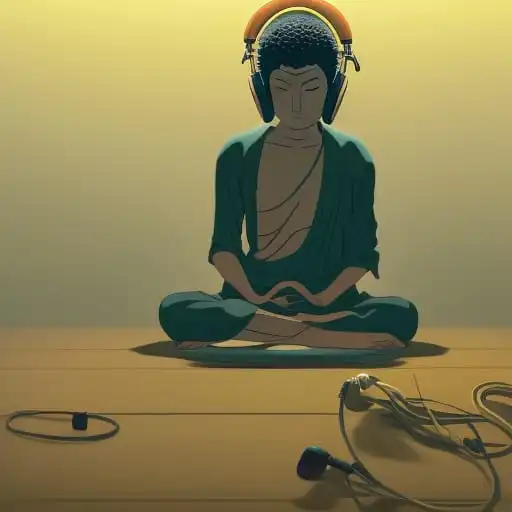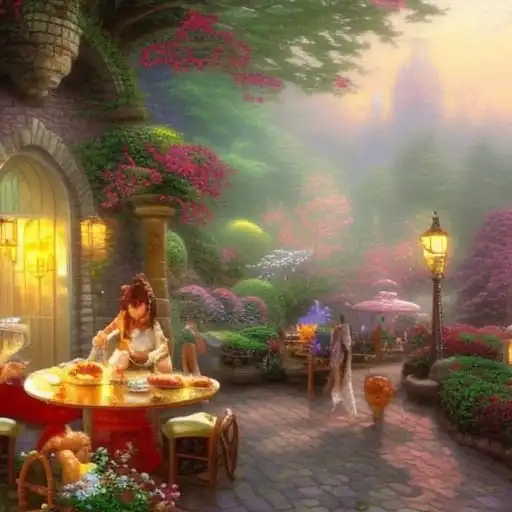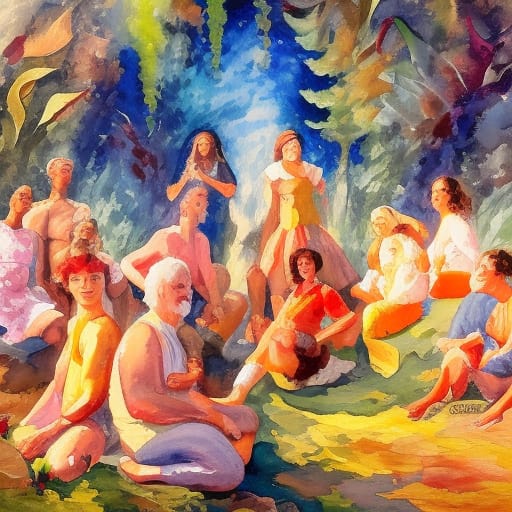Thanks! 😊 I appreciate the words of encouragement, really helps in keeping me motivated to tackle the book I'm working on!
Sol_r_Punk
Hey, thanks for the great reply! Sounds like you are absolutely picking up what I'm putting down, which is awesome because sometimes I forget to mention that I'm, in a way, working from the end goal backwards, so sometimes concepts can be a little on the vague side since the details haven't been fully worked out yet, which is why I love your reply. Now to tackle your points:
(1) I would say even in the long term that we'd still be dependent on a large repository of available designs, however, these will not be provided via some tech brothel bent on being some end-all-be-all of what you use. Instead, they will be refined designs that have been continuously improved upon by the community at large. Likely at this point, waste will be minimized and functionality will be focused. I know not everyone will want to use the same thing, or have the same design, so I'm thinking there could easily exist a base model that gets the job done, but designed with customization in mind so that later down the road you can add in a different colored insert, or a different handle configuration. Whatever might suit you best, but likely won't need to make every model to try what's best. Which does lead me to your second point:
(2) I also share the concern with personal overproduction, and there needs to be a way to ensure that people don't go ham with trying to print every single option for simply no other reason then because they can. The best way, so far, that I've come up with combatting this is by making everyone responsible for providing their own base material for the design. Kind of like in an RPG where you need to somehow acquire the base materials to craft an item, I envision a similar system. Which at this point I should point out that I'm approaching this from a post-monetary society, and I know not everyone agrees that can happen, but it would keep people from just buying and hoarding resources. Instead there are a myriad of other ways where materials can be acquired, either through getting it yourself, asking for help, recycling old parts, collective agreement with others, etc., but that should effectively help limit overproduction as people will tend to be more careful with how they "spend" their resources. (Post point, with some exotic material, it can safely be assumed that we've extracted enough from the Earth that recycling can be the way from there. Otherwise, modifications will have to be made to designs in order to live within the constraints)
(3) I hadn't really fleshed out this point, but agree 100% with where you are taking it. I don't think we'll be able to escape our dependence on electricity generation, at least not with my current understanding of physics, so we'll still need ways to create and store electricity for the world. Anything we can do to help supply chains be more self sufficient is a step in the right direction. I know there is some concern that we can't always wait for a part to be printed, but if it's mission critical and people are half competent at planning, there will be spares available for backup.
I really wish there was some consequence for overproduction, and I agree that corp interests are far too entrenched in politics to get anything like that done short term. It's frustrating, and I don't think governments would help anyways. Production creates jobs, and more jobs = a better economy (or so the theory goes) so it suits them to side with the corporations (until the shit hits the fan anyways). I'm hoping through individual empowerment we can eventually suck enough power away to start making some real changes.
Anyways, loved the thoughts you put out and feel free to refute anything I put out if it seems off point. As much as I'd like to be a subject matter expert in everything, I'm not!
If I weren't already knee deep into building my own world, I'd be tempted to write some modules. I love putting systems to the test. I'd be curious to see how the world responds to chaotic and/or evil players.
I think part of the allure is being able to do things you couldn't get away with irl. I think your chase and aerial maneuvering scenarios might be a good way of really opening up the possibilities of the world.
Thanks for the recommendation! Seems like an interesting book at first glance, so I'll be adding it to my list of future readings.
I've briefly looked through the manual and modules and am glad to see that it is quite detailed. Looks like you've put a ton of work into it! I'll make not of anything that sticks out to me if/when I get time to peruse it.
One more thing. What would be the main draw for attracting players to your TTRPG (outside of just the setting)? With D&D you have the ability to be both good or evil and have a plethora of options for living out your life within a fantasy setting. With Solarpunk, there seems to be a natural affinity to make everything aligned with good. Is there a way to be evil within your TTRPG, and if so, what repercussions would the GM have available to keep players in line?
I think.... overall it does a good job of catching the reader's attention and setting up the next scene in a way that I'm genuinely interested in what happens next. In the context of an intro for a TTRPG, I'm not so sure. I feel like the setup for the action should be a bit more concise and should hint a little further at the type of action we're to expect. (For example, my initial reaction is "I think we're about to go fight a fire.... but I'm not sure"). In short, my takeaway is that I feel like I'm still missing context.
I'm curious as to how the "action" plays out in your TTRPG. I know conflict and problem solving will always exist regardless of setting, but how have you managed to turn that into fun actionable experiences for the player?
Well, hate to disappoint, but the story was 100% homegrown. As much as I think AI can be a very useful tool, the creative arts, to me, will always be a medium for the language of emotion and a playground for curiosity. AI will get close, but it's incredibly hard to replicate that which you can't feel. As to your first comment, I'll take it as that my technique has the makings of a good artist, but perhaps struggles to appeal emotionally, which I think would be a valid critique. Emotional appeal wasn't a heavy concern while I was crafting the narrative.
As to the second comment, it's important to remember that change has to work from two angles. From the goal backwards, as a way to orient our collective compasses, and from the present forward as the actual driver of change. Both are equally important and useless without the other.
I intentionally wrote the story as an excerpt, to give it a "slice of life" feel to it. I didn't want everything to be explained and instead leave it to the reader to fill in the blanks as to how certain aspects came to be. You're take is interesting and quite different from my headcanon, though I could definitely see things playing out that way.
Thanks!! :) ngl, dialogue is a challenge. Social anxiety is a tough bug to patch so I don't really have a good frame of reference for what is "organic". If you know of any good books that have great dialogue, I'd be very interested in checking them out!
Yes, that would be correct! At least to the extent people are willing. I'd imagine that a whole community of picky eaters would probably self-organize in a way where everyone just cooks for themselves (Although increased exposure to new ideas and ways, after some time, would have a proximity effect and people may find new or different ways to bond). All and all I think the inclination to cook together would mostly stem from convenience, as in you would be more willing to help or accept something different if it means you get to go back to do that thing you'd rather be doing much quicker.
You know, I can think of plenty of experiences where communal food halls were lively, fun affairs (either serving or attending), but never really realized the lack of festiveness in most restaurants. Maybe that's why I enjoy cooking at home more.












If you look into Montessori schools, they are a mix of a structured social environment for that early social skill building and working with nature/natural principles to help kids actively learn about the world around them through interaction and working together with others. I actually meant to mention that style of learning within my writing, but that train of thought got caught up in another station.
The Montessori style of education is well worth looking into, and I really hope that governments and communities around the world see the value in adopting that type of learning environment.